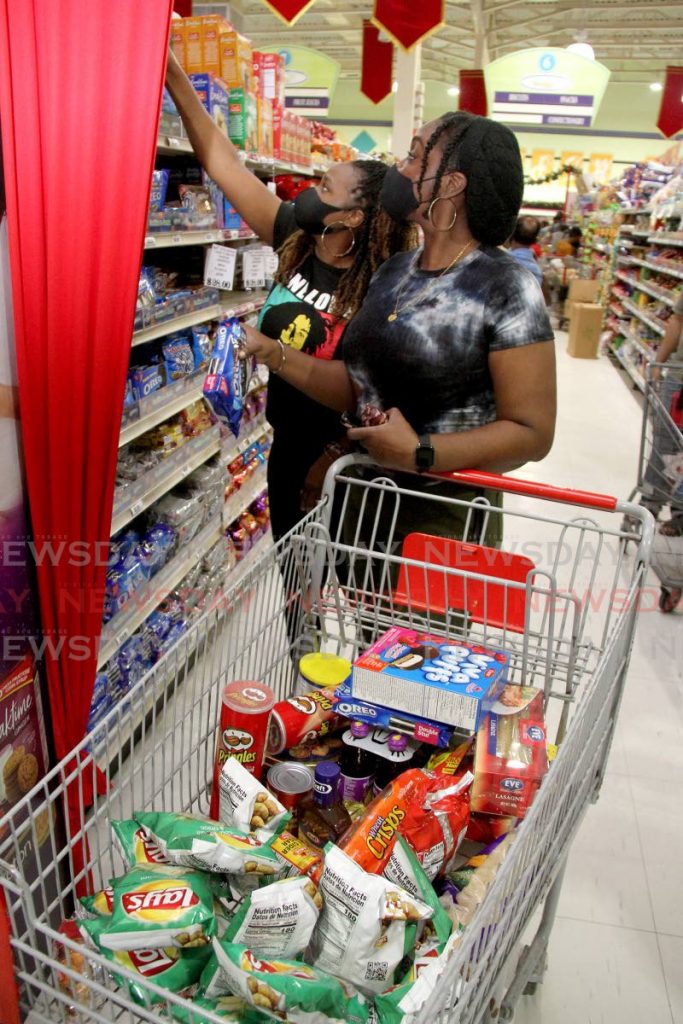Trinidad and Tobago’s unstated food policy

We have the pandemic to thank for many things, not least for the relative shortage of imported foods that is making us re-focus on our capacity to feed ourselves.
Having done our best to destroy our agricultural sector by allowing energy to totally replace agriculture as the primary economic driver for five decades, the pandemic has thrown us into reverse.
I am not arguing for pre-1973 days, but I remember that back in the 19050s TT was considered to have the capacity to be the breadbasket of our region, with the right infrastructure and regional arrangements, and to export beyond the West Indies. That may not be so today, but like so many of our regional neighbours we swung the pendulum way over and have now come to meet most of our domestic food needs through international imports, which we can ill afford. Last week our Minister of Agriculture Land and Fisheries, Clarence Rambharat, declared that we were eating ourselves to death on imported food such as mayonnaise, ketchup and maraschino cherries, which is mopping up too much foreign exchange in a period of severe forex drought. It’s a lose-lose situation.
Our reliance on foreign food was deepened by the steady and persistent decline in investment in agri-technology. In 2015, according to World Bank figures, our food imports were 11.4 per cent of our total import bill, while the average percentage for Latin America and the Caribbean was 7.3; and ours was double Mexico’s.
That is hugely significant, and the figures have probably hardly altered in the last five years. We are nothing if not profligate and seriously bad managers of our economy. We may argue that we do not have the economies of scale, lack land mass, etc, but while those are real factors, we need not be in the present unholy position. There is no reason at all why farming in TT should be so small-scale as not to contribute, in 2015, only one per cent of our GDP.

In 2014, processed agricultural goods accounted for the bulk of our food and beverage exports, which included water, cereal, beer, rum, cigarettes, chocolate and biscuits; and beverages and tobacco alone made up 49 per cent of it. So it is not a question that we do not have the know-how, it is clear that the situation derives from a lack of proper planning, Vision 2020 notwithstanding, and the failure to see the broad picture.
Mr Rambarat also stated that making agriculture an essential service during the lockdown was the most important policy decision of the government. It made a lot of sense, since it allowed for a constant supply of food, nationally. It reminded us too that we have options, if we wish to exercise them. I join him in congratulating the farmers, and am certain they would agree with the suggestion that it is the sort of prioritising of agriculture that is needed, not as a reaction to a crisis but on an ongoing basis. Farmers could do a whole lot better still, but the entire sector needs better infrastructure and strategic development, and the population must buy into the policy direction.
The government probably has an overall food policy but it suffers from a shortage of oxygen. The ministry's website is very good, if a little out of date, but I could not find a statement that laid out its priorities and plans for the next five years, for example. How we feed ourselves and our goals in respect to imports and exports, particularly in light of the minister's comments make this imperative. The vision, post-covid, is particularly relevant because entrepreneurial farmers are making an impact and the public is getting increasingly in tune. How do we plan to capitalise on that and embed it to form a base for future developments?
While I believe the state should not control the means of production but rather enable production, what we eat is being dictated by importers, with our farmers bringing up the rear. We should consider how can the state ensure food sustainability over the next few entangled years of disrupted food supply chains?
For example, I would like to see an audit of our current agricultural production and also some target-setting, with relevant legislation to support that, if necessary. It could be assisted by some well-publicised national nutritional guidelines.
I saw this work in the UK and succeed in changing habits that improved the health of workers, which then had an impact upon non-communicable diseases and, in turn, reduced the burden on the national health system. Private- and public-sector food procurement could be linked to those national nutritional standards.
These objectives cannot be achieved by the ministry alone. It requires consultation and a government-wide food policy. Its implementation should be interwoven into the school curriculum and urban and rural, food and farming centres, with teaching, and online facilities should be available.
Some of these things once existed here. We may be in a fair position compared to many countries, but we should prioritise reducing our vulnerability.

Comments
"Trinidad and Tobago’s unstated food policy"